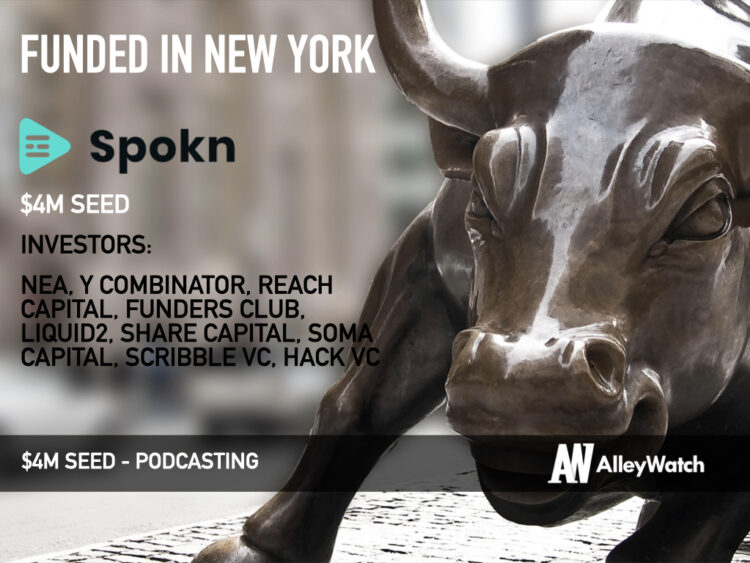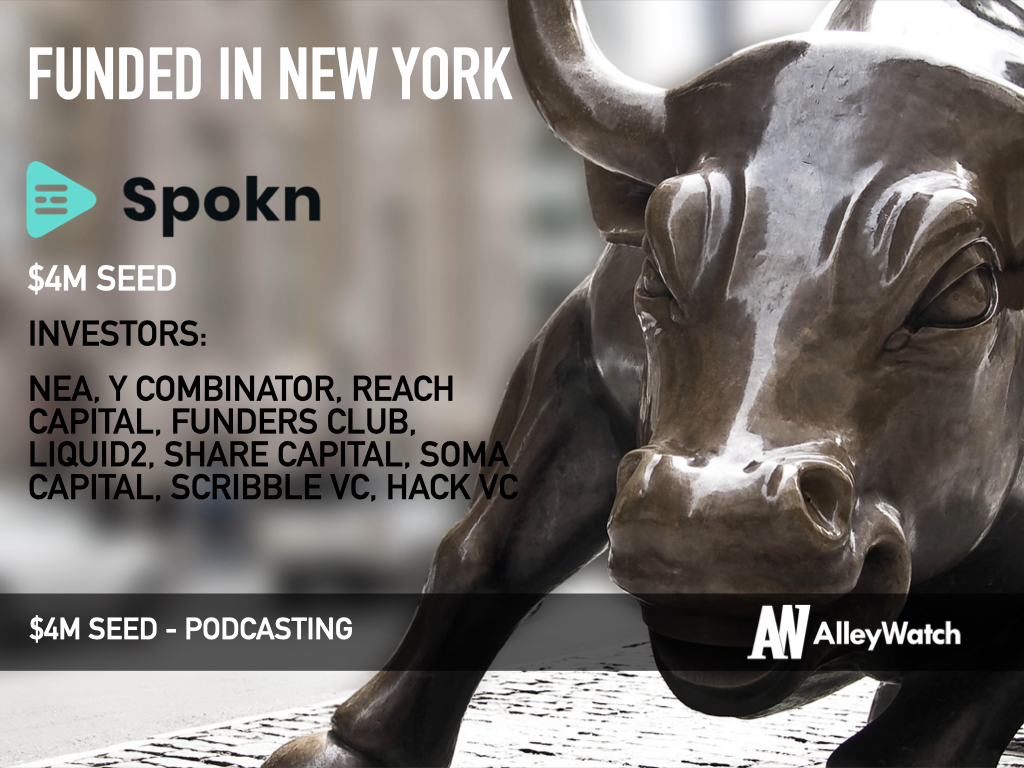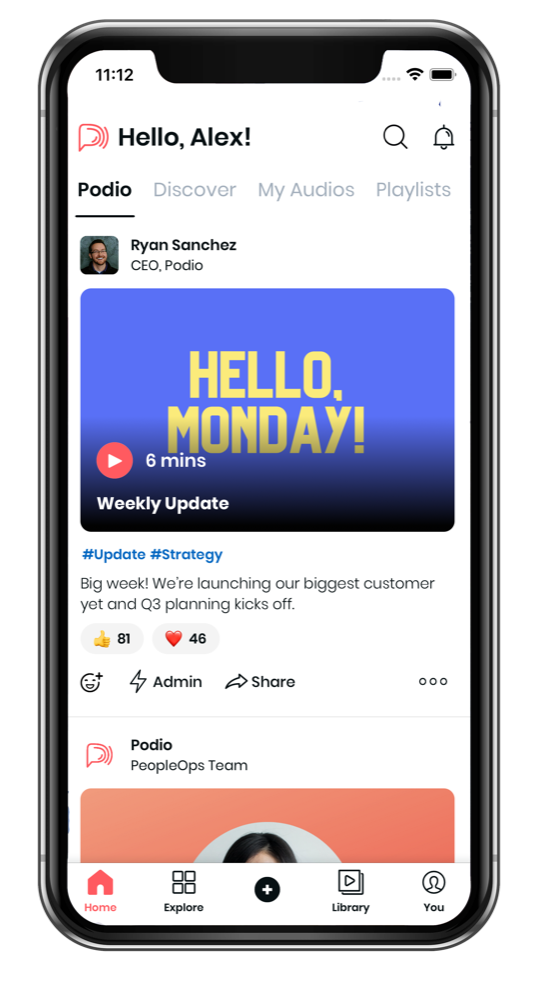Among paid Slack customers, users are spending 90 minutes per day using Slack on average. Companies are also spending countless hours on Zoom at a time where studies are now emerging indicating that fatigue from virtual interactions is taxing the psyche, leading to decreased concentration. However, podcast listeners spend an average of 6 hours and 37 minutes listening to podcasts every week and continue to be highly engaged. Spokn is a secure podcasting platform designed for work that seeks to capture the engagement of podcasts and bring it to the corporate setting, reducing time spent on non-aural platforms. The internal podcasts add a more personal touch to everyday communications and employee development programs, increasing employee engagement. Spokn is easy to use across the entire organization when it wants to get out content quickly for a variety of use cases (updates, mission statement, training, etc.) and also has the added benefit of freeing up the hands of employees to allow them to multitask.
AlleyWatch caught up with Cofounder and CEO Fawzy Abu Seif to learn more about the powerful impact that podcasting in the workforce can have, the company’s strategic plans, latest round of funding, which brings the total funding raised to $4.5M, and much, much more.
Who were your investors and how much did you raise?
Spokn raised a $4M Seed round with funding from NEA, Y Combinator, Reach Capital, Funders Club, Liquid2, Share Capital, SOMA Capital, Scribble VC, and Hack VC.
Tell us about the product or service that Spokn offers.
Spokn is a podcasting platform for work. We help companies boost their internal communications, training, onboarding, and engagement through the format their employees love: audio. On Spokn, companies can easily record and share internal podcasts that are more personal than email or Slack and give employees a healthy break from their Zoom screens. That’s why companies like ServiceNow, Podium, Udemy, ShipBob, and Mixpanel are using Spokn to build a great remote culture.
What inspired the start of Spokn?
Before starting Spokn, I wasted more than three hours a day driving to and from work in Cairo, Egypt. It was frustrating: I couldn’t spend the time improving my professional skills and knowledge. So, I thought audio learning would be the perfect solution. There were a few twists and turns, and in the summer of 2020, we introduced Spokn as a B2B audio learning and development solution. It was mid-pandemic and we quickly discovered that companies and employees adored asynchronous audio as a format. Our customers started to use Spokn to create audios on weekly CEO updates, department highlights, employee appreciation, onboarding, and more. So in November 2020, we launched Spokn as a podcasting platform for work.
Consistent communication matters more than ever when companies are remote, but existing tools weren’t built for it: email is impersonal, Slack is too noisy, and Zoom fatigue is real.
Podcasting is a uniquely good format for building communication and culture in dispersed teams: it’s easy to produce, avoids scheduling problems, is more intimate than email and Slack, and gives employees a healthy break from their screens.
Spokn was purpose-built to bring podcasting into the workplace – from strong security to internal distribution tools like push notifications, automation, and analytics.
What market does Spokn target and how big is it?
Spokn targets culture-first companies, and we’ve already begun to expand beyond fast-growing startups, which are our beachhead customers. In the US, there are 650,000 companies with over 50+ employees. We believe at least 20% have an employee base composed mostly of Millennials and Gen-Zs – the ‘audio generations,’ making this a $40B+ market.
What’s your business model?
Customers purchase annual licenses for all employees. They’re able to create an unlimited number of podcasts and listener groups within the company.
How has COVID-19 impacted the business??
Because of remote and hybrid work, employees are craving new ways to feel comradery and community at work. Internal communications and employee engagement have emerged as urgent priorities for companies, and Spokn is defining a new category with async, audio-first employee engagement.”
What was the funding process like?
Our fundraising process took ten days from start to finish, and we were fortunate to close two weeks before Y Combinator’s demo day with investments from top VCs like NEA and Reach Capital.
What are the biggest challenges that you faced while raising capital?
I’m from Egypt where my cofounder Mariel and I had been living for the last few years. We only moved to New York on the eve of the pandemic (Feb 2020). We didn’t have any investor connections and couldn’t raise for over a year. So getting into Y Combinator really helped us in that regard (and much more), especially that it happened as we pivoted into podcasting for work.
What factors about your business led your investors to write the check?
After we launched Spokn as a podcasting platform for work in November 2020, we grew at 40% month over month. We landed customers like ServiceNow, Podium, Mixpanel, ShipBob, and Udemy. Investors started seeing the potential of this new category and the problems it could solve for our customers, especially in a remote and hybrid world.
What are the milestones you plan to achieve in the next six months?
We’ll continue to grow our customer base and begin to serve larger companies. Importantly, we’ll build a library of early adopter ‘success stories’ and share their best practices to help other companies get the most of podcasting for work.
What advice can you offer companies in New York that do not have a fresh injection of capital in the bank?
Try to stay alive long enough to find the right problem to solve. In the two years that we spent trying (and failing) to raise, and we learned that having no money makes you *very* scrappy. Use your desperation as fuel. You’ll end up with loads of user conversations and, as a result, unique insights that will help you build what people want.
Where do you see the company going now over the near term?
On the customer side, we’re building a knowledge base for practices for podcasting at work – from how-to guides for CEO updates to interview questions for fun employee spotlights. In product, we’re also developing the product to support companies in using podcasts and audio storytelling to improve their recruiting and onboarding. We’re also growing our sales team to ramp up acquisition.
What’s your favorite outdoor dining restaurant in NYC
My fire escape! I love to order food and sit outside to watch the city.







